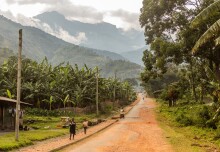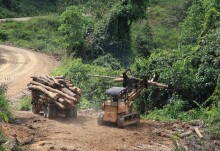

News in brief
Quantum hubs and R&D ecosystem: News from Imperial
Here’s a batch of fresh news and announcements from across Imperial.



Quantum hubs and R&D ecosystem: News from Imperial
Here’s a batch of fresh news and announcements from across Imperial.


Dr Chao Wu receives fellowship to support development of net zero innovation
UKRI Fellowship will enable the development of an innovative technology, WINDCRETE, to address global issues in wind energy and construction.


Q&A: Understanding nature loss as a public health concern
Imperial College London and the University of Kent researchers published a framework capturing the connections between mental health and conservation.


Logged forests can still have ecological value – if not pushed too far
Researchers have analysed data from 127 studies to reveal ‘thresholds’ for when logged rainforests lose the ability to sustain themselves.


Imperial scientists solve conservation problems with new mathematical techniques
Three multidisciplinary Imperial College London research teams have secured over £50,000 in funding from the Turner Kirk Trust (TKT) Sprint Challenge.


Recycling cement paste is a cheap and efficient way to reduce cement emissions
Recycling cement paste is one of the cheapest and most efficient ways to reduce emissions from cement production, a new study has found.


Dr Alalea Kia Wins Young Engineer of the Year her Kiacrete Invention
Dr Alalea Kia wins 2024 Young Engineer of the Year award for permeable concrete pavement 'Kiacrete', which helps adapt to and mitigate climate change.


Research on environmental risks of pet parasiticides receives President’s Award
An interdisciplinary research group showing the environmental risks of pet parasiticides has received Imperial College London's President's Award.


That's illuminating
Work is beginning on upgrades to switch to low energy lighting as part of our Net Zero by 2040 commitment.


West London families experience science behind air pollution study
The WellHome study team welcomed participants from the local community to Imperial’s White City Campus for a unique interactive science experience.